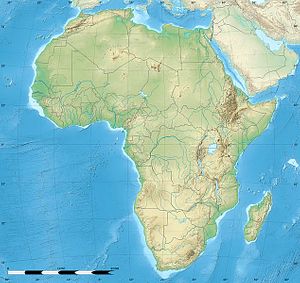As tensions between China and Japan multiply, there is an increasing battle for influence in other states. For example, in his recent article in The Diplomat, Jin Kai noted China and Japan’s global media war. There has also been an upswing in more traditional diplomatic wrangling, with Japan seeking to increase its influence in ASEAN as an attempt to reduce China’s sway in the region. With both China and Japan seeking to assert their leadership over the Asia-Pacific, it makes sense that both countries would woo ASEAN. It’s a bit more surprisingly to see China-Japan diplomatic competition supposedly pop up in Africa.
Recently, China’s Foreign Minister Wang Yi and Japan’s Prime Minister Shinzo Abe both visited the African continent. Abe left on January 9 for a week-long tour of the Ivory Coast, Mozambique, and Ethiopia. Meanwhile, Wang was in Africa from January 7 to January 11, visiting Ethiopia, Djibouti, Ghana, and Senegal. Given the current chill in China-Japan relations (and the tendency for both countries to snipe at each other in the media), the two trips quickly morphed into a sign of ‘competition’ over Africa.
Both countries rejected the idea that they were competing. When Chinese Foreign Ministry spokesperson Hua Chunying was asked to comment on the idea that Wang Yi’s visit to Africa “is directed against Japan,” she responded that anyone harboring this idea “is not so acquainted with the past and present of China-Africa relations.” Indeed, as Hua pointed out, it’s traditional for Chinese Foreign Ministers to visit Africa as their first overseas trip of the new year. Hua praised China “sincere and selfless help” for Africa, and warned that trying to stir up a rivalry in Africa is “a wrong decision which is doomed to fail.” This comment was likely directed at Japan, but could just as easily apply to the United States and other countries seeking to increase their influence in Africa.
Japan also denied that Abe’s visit to Africa had anything to do with China. Hiroshige Seko, a deputy chief cabinet secretary, was quoted in an Associated Press article as saying that competing against China is “not our intention at all.” Seko added, “As far as the African nations are concerned, they are important regardless of China.” African countries are important to Japan for the same reason they are to China — a wealth of natural resources as well as ample opportunity for foreign investment. The New York Times pointed out that increasing ties with Africa is just one aspect of Abe’s diplomatic strategy, all of which is designed to support “Abenomics.”
In a speech in Ethiopia, Abe reaffirmed Africa’s importance. “A considerable number of Japanese believe that Africa is the hope for Japan,” he said. His speech focused almost entirely on the potential for a positive relationship between Africans and Japanese companies — including how Japanese management strategies can benefit African people. “When Japanese companies that value each and every individual come to Africa, a win-win relationship in the truest sense can emerge,” Abe said. By contrast, his vision of the Japanese government’s role in Africa seemed like an afterthought. Abe did discuss his wish for more cooperation with the African Union, and offered to increase Japans’ assistance and loans to the continent, but he spent far less time on this point than on extolling the virtues of Japanese businesses.
Japan’s strategy, in other words, is economically focused. It’s clear that Abe’s pursuit of a relationship with Africa is closely connected with Japanese businesses. China, on the other hand, constantly emphasizes the “friendship” between its government and those of African nations. Though Chinese companies do big business in China, Beijing almost never alludes to this fact in its official remarks. When joint projects (such as roads or government buildings) are brought up, these projects are always a sign of China’s friendship towards Africa.
Accordingly, in his speeches Wang Yi focused on the government-to-government relationships between China and African nations. In Senegal, Wang called for both countries “to firmly support each other’s core interest[s] and major concerns.” In Ghana, he spoke about the need “to promote practical cooperation through strengthening traditional friendship.” China’s relationships with African countries are focused not just on business opportunities (although of course that’s an important aspect) but also on gaining African diplomatic support for China’s policies.
Whereas Abe seems content to have Japanese businesses make profits, China is actively pursuing soft power on the continent. This is nothing new for China. A 2013 study by Gustavo Flores-Macías and Sarah Kreps of Cornell University found that, since the mid-1990s, China has been quite successful at parlaying its trade relationships in Africa and Latin America into tangible foreign policy support. Japan doesn’t seem to be seeking this sort of influence (at least, not yet). Instead, Abe is more openly concerned with increasing economic interactions. While China and Japan may look like they’re competing in Africa, the two countries are actually playing different games.

































